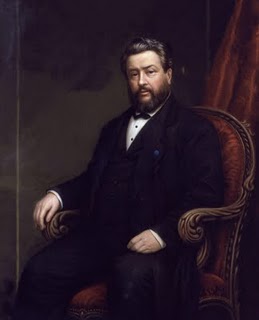Monday, May 31, 2010
2 Corinthians 13:11
Friday, May 28, 2010
Numbers 36; Psalm 80; Isaiah 28; 2 John
Numbers 36; Psalm 80; Isaiah 28; 2 John
WE ARE FIRST INTRODUCED TO Zelophehad and his daughters in Numbers 27:1-11. Normally inheritance descended through the sons. But Zelophehad had no sons, only five daughters named Mahlah, Noah, Hoglah, Milcah, and Tirzah. Zelophehad belonged to the generation that passed away in the desert. Why, the daughters asked Moses, should his family line be prohibited from inheriting just because his progeny were all female? Moses, we are told, “brought their case before the LORD” (Num. 27:5). The Lord not only ruled in favor of the daughters’ petition, but provided a statute that regularized this decision for similar cases throughout Israel (Num. 27:8-11).
But a new wrinkle on this ruling turns up in Numbers 36. The family heads of Manasseh, to which the Zelophehad family belongs, ask what will happen if the daughters marry Israelites outside their tribe. They bring their inheritance with them to the marriage, and it would get passed on to their sons, but their sons would belong to the tribe of their father — and so over the centuries there could be massive redistribution of tribal lands, and potentially major inequities among the tribes. On this point, too, the Lord himself rules (Num. 36:5). “No inheritance may pass from tribe to tribe, for each Israelite tribe is to keep the land it inherits” (Num. 36:9). The way forward, then, was for the Zelophehad daughters to marry men from their own tribe — a ruling with which the Zelophehad daughters happily comply (Num. 36:10-12).
If this offends our sensibilities, we ought to consider why.
(1) Pragmatically, even we cannot marry anyone: we almost always marry within our own highly limited circles of friends and acquaintances. So in Israel: most people would want to marry within their tribes.
(2) More importantly, we have inherited Western biases in favor of individualism (“I’ll marry whomever I please”) and of falling in love (“We couldn’t help it; it just happened, and we fell in love”). Doubtless there are advantages to these social conventions, but that is what they are: mere social conventions. For the majority of the world’s people, marriages are either arranged by the parents or, more likely, at very least worked out with far more family approval operating than in the West. At what point does our love of freedom dissolve into individualistic self-centeredness, with little concern for the extended family and culture — or in this case for God’s gracious covenantal structure that provided equitable distribution of land?
We live in our own culture, of course, and under a new covenant. And we, too, have biblical restrictions imposed on whom we marry (e.g., 1 Cor. 7:39). More importantly, we must eschew the abominable idolatry of thinking that the universe must dance to our tune.
Numbers 36; Psalm 80; Isaiah 28; 2 John is a post from: For the Love of God
"Tuesday, May 25, 2010
Solomon Is Not the One
(Author: Jonathan Parnell)
 In Deuteronomy 17 Moses instructs Israel concerning the king that they will one day appoint for themselves. He gives the following three negative stipulations:
In Deuteronomy 17 Moses instructs Israel concerning the king that they will one day appoint for themselves. He gives the following three negative stipulations:
- he must not acquire many horses (v.16)
- he must not acquire many wives (v.17a)
- he must not acquire excessive silver and gold (v. 17b)
Now fast forward to Samuel and Kings. In 2 Samuel 7:12-17, God promises King David a son who will be king forever. Five chapters later his son Solomon is born, and by 1 Kings 1 this son has taken the throne. Could this be the promised eternal king?
The author of Kings leaves us in suspense. It's not until 1 Kings 10:14-11:8 that we get a clear answer. Notice what he says there:
- 10:21 - 'All of King Solomon's drinking vessels were of gold, and all the vessels of the House of the Forest of Lebanon were of pure gold.
- 10:26 - 'And Solomon gathered together chariots and horsemen. He had 1,400 chariots and 12,000 horsemen.'
- 11:3 - 'He had 700 wives, princesses, and 300 concubines.'
In other words, he had excessive gold, excessive horses, and excessive wives. And although he doesn't have to, the author concludes in 11:6, 'So Solomon did what was evil in the sight of the LORD and did not wholly follow the LORD, as David his father had done.'
So Solomon is not ultimately the Son/King who was promised in 2 Samuel 7. And if Solomon is not the one, then there must be another.
Another son of David would come—there would be another king.
- This king would not have excessive silver and gold. He would be rich, and yet for our sake he would become poor so that we, by his poverty, might become rich (2 Corinthians 8:9).
- This king would not own many horses. He would have to borrow a donkey to ride into Jerusalem (John 12:14).
- This king would not have many wives. He would have one Bride and he would give his own life for her, that he might sanctify her and present her in splendor, holy and blameless before him forever (Ephesians 5:25-27).
Here is your king, O Israel! Here is your king, O peoples! Here is the Son of David who was promised, and he will reign forever.
Thursday, May 6, 2010
Jonah
The Lord hurled a great wind upon the sea. Jonah 1:4
The lot fell on Jonah. Jonah 1:7
The Lord appointed a great fish. Jonah 1:17
The word of the Lord came to Jonah the second time. Jonah 3:1
The Lord God appointed a plant. Jonah 4:6
God appointed a worm. Jonah 4:7
God appointed a scorching east wind. Jonah 4:8
The Lord has more ways of confronting me than I have ways of evading him.
Jonah is a post from: Ray Ortlund
"You also shall joyfully say
“You say, ‘I wish my cup would run over!’ What are you doing with it? ‘I am trying to empty it of my old sins.’ That will not make it run over. ‘I have been washing it with my tears.’ That will not make it run over. Do you know the only way of having joy and peace in your heart? What would you do with an empty cup if you were thirsty? Would you not hold it under a fountain until it was full? That is what you must do with your poor, dry, empty soul. Come and receive of Jesus, grace for grace. . . . Hold your empty cup under the stream of divine fullness, which flows to the guilty through Jesus Christ, and you also shall joyfully say, ‘My cup overflows.’ May the Lord pour his mercy into you, for Jesus’ sake.”
C. H. Spurgeon, The Treasury of the Old Testament (London, n.d.), II:467.
You also shall joyfully say is a post from: Ray Ortlund
"

